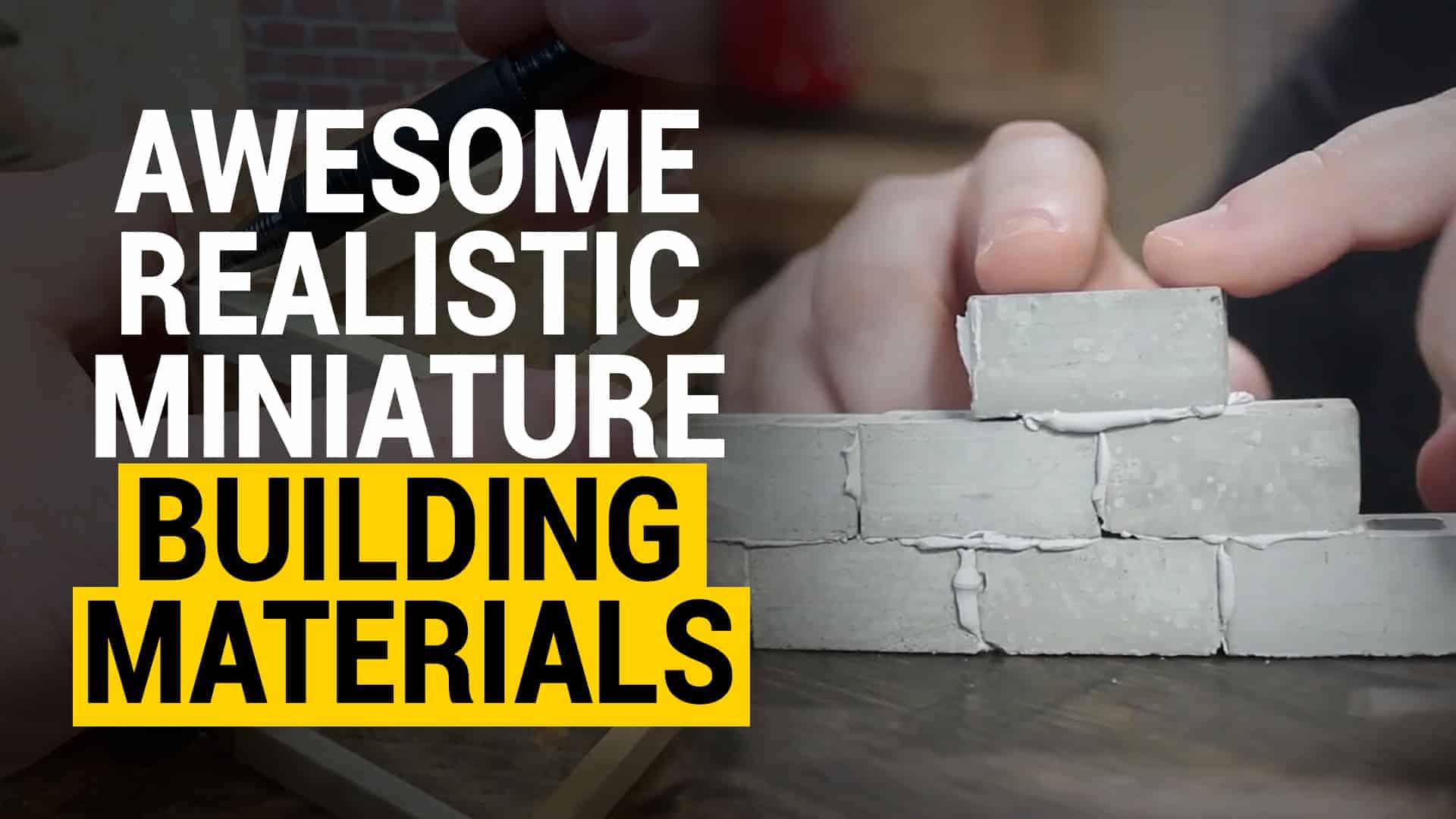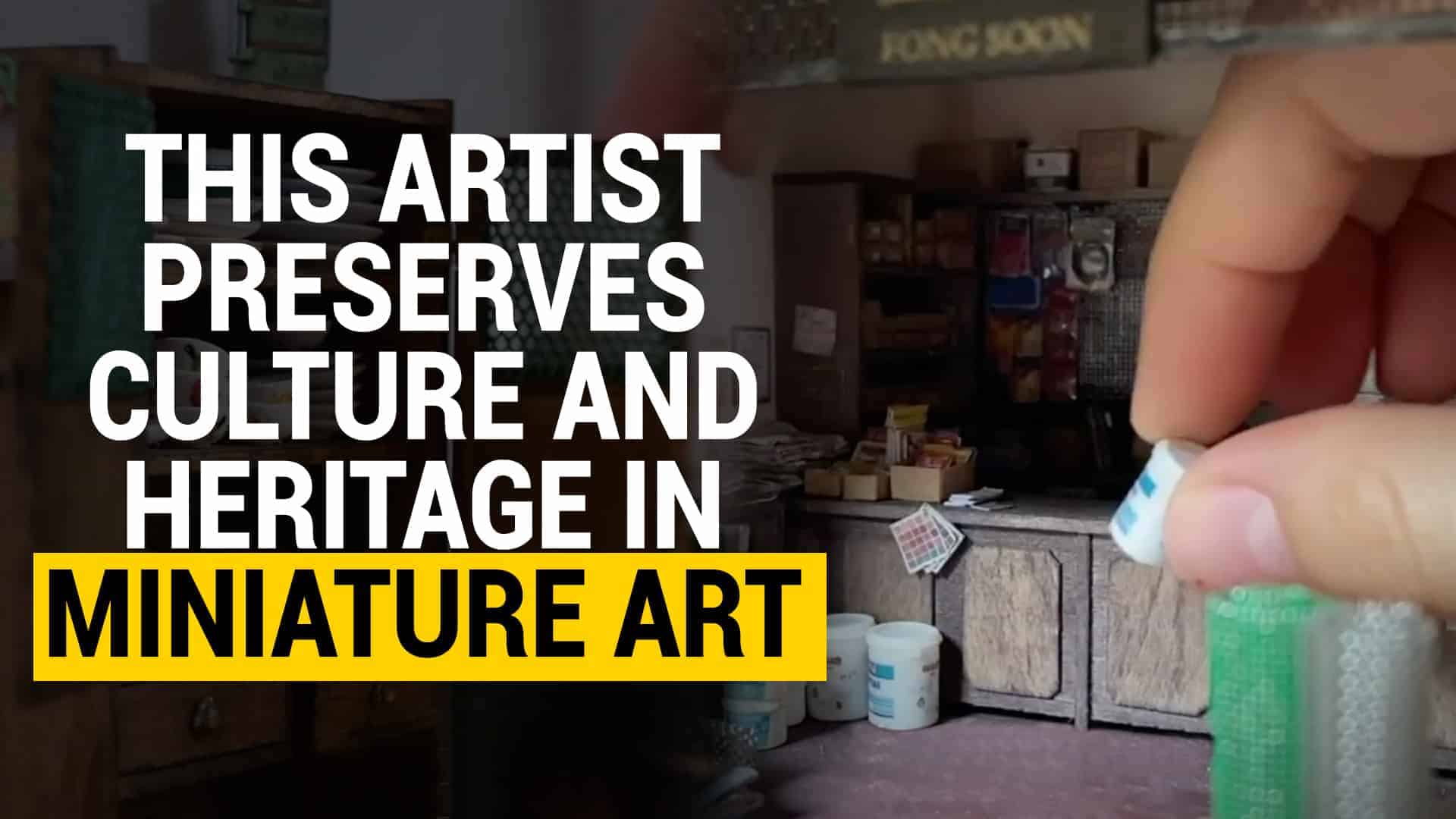Pui Wan, a miniature artist from Malaysia, aims to preserve her heritage and culture through her stunning creations. She spends hours, sometimes days, meticulously crafting tiny versions of everyday products and scenery. For Pui, it’s not just about preserving her heritage but following her passion in life. While she graduated with a degree in mechanical engineering in 2014, Pui decided to create miniature art full-time instead.
Today, Pui runs a successful Etsy shop and creates commercial, custom-made artwork as well. She’s also been featured in several media outlets, even giving a TedTalk about her life’s work in 2018. Recently, she appeared on Ryan Reynolds’ show called “Ryan Doesn’t Know,” where she taught him how to make a mini hairdryer!
Her work appeals to visitors and natives alike. It gives foreigners a glimpse into Malaysian culture while creating a nostalgic feel for the locals. Pui’s work brings the world together in a way because it reminds people to preserve their culture, whatever that might be.
Pui enjoys the fact that her artwork keeps her childhood memories alive and pays tribute to her heritage. It’s a way to capture life’s sentimental moments and allow people to relive fond memories. Perhaps the most fantastic part of her story is that she’s entirely self-taught. She got into the craft years before graduating and carried her love for miniature art through college. It simply took reading a book about the art form to capture her interest forever.
“I first stumbled upon miniature art from a book, and that book is teaching how to make miniatures,” Pui said. “It was about 2007, and I was quite young; I was immediately obsessed with it because I was quite surprised and didn’t know we can turn something so small.”
Preserving heritage and telling stories through miniature art
Pui creates a large assortment of dioramas and objects, from houses to workshops to food stalls. Her creativity seems to have no bounds! It’s inspiring to watch her artwork come to life and seeing the intricate details involved in the process. It certainly requires a lot of patience and dedication to making the miniature art, and Pui makes it look effortless!
Some of her greatest accomplishments include the following creations:
- A scissors sharpening shop. She decided to interview a local man who used to run his store. He’s retired now, but people still seek him out to sharpen dull scissors. After learning the details about his shop, she created a beautiful replica of the craftsman’s store. It includes work tables, tools, machinery, and other items you’d find in a scissors sharpening store.
- A barbershop. While the shop closed in early 2020, its memory lives on in the mini art replica created by Pui. It includes the classic barber chairs, hairdryers and shampoos, and even a clock on the wall. She brought it to the shop before it closed, and the resemblance between the two is remarkable.
- An old coffee shop. On her website, Pui describes visiting a local coffee shop hidden away from the chaos of the city. It’s located in an alley where her sister took her wedding photos. After she visited the shop, Pui fell in love with the scenery and decided to recreate it. The alley has since been reconstructed, but Pui preserved the culture and heritage of the area in her work. It’s complete with vintage-style Malaysian architecture and doors and tables, artwork, coffee cups, and breakfast foods. She says: “This work contains the art of building structure from our ancestors and the memories among the neighborhoods.”
- A home and garden. A man asked Pui to construct a replica of his parents’ home since they lived far away from him. It contains all the luxuries of home, including furniture, outdoor plants, and even family pets!
Process of creating the miniature art
Much of Pui’s creations are handmade, and basic tools used include foam boards, wood, plastic, and paper. She also utilizes tiny paintbrushes, paints, and wire to create color and texture. Pui takes advantage of paper scraps as well to make the scenes realistic. After all, most cafes, homes, and shops have newspapers, magazines, and menus lying around.
“As a handmade artist, I love to try to make something by my hand without using [a] laser cut machine or 3D printer,” Pui says. “Because sometimes I think it’s good to challenge yourself and train yourself to make something that you have never made before.”
She aims to capture the essence of every business, scene, and home she creates. Pui pays great attention to detail, making sure to label all food items and bottles accurately. It takes great precision and willpower to construct the miniature art. But, being able to portray her heritage makes it all worth it. She follows a certain process to make the miniature art, which helps keep the work streamlined and efficient.
“Most of the time, we have to start working on the basement first, the foundation. Then, we will go on to make the structure of the building like the walls, the ground, the roof – stuff like that. You know, we have dirt and dust on the ground, we have stains on the wall; so all these things are a crucial element to make the scenario more realistic,” she says.
 Final thoughts on the artist preserving her culture and heritage with mini art
Final thoughts on the artist preserving her culture and heritage with mini art
It’s believed that miniature art dates back to the 16th century, when the genre first became popular. Artists back then started to create paintings and sculptures at a smaller size and reduced scale. Nowadays, the art form has become more mainstream, and there are even annual shows held around the world for artists to showcase their work.
Some artists create small paintings or engravings, but Pui focuses on sculptures and scenery. She says the art allows her to reminisce on her childhood and keep her heritage alive. The world is constantly changing, but art makes it possible to preserve memories for a lifetime.


















